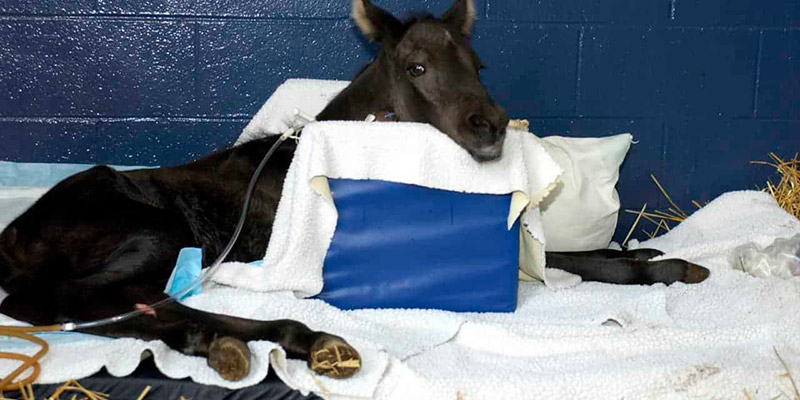Section 2 | Respiratory Diseases in Horses: Rhodococcus equi
Industry
Page 09 /
Treatment of Pneumonia
Treating Foals Without Clinical Signs
Most foals with subclinical pulmonary infections (not showing clinical signs of disease) recover without treatment. In fact, the use of antimicrobials to treat foals that are infected but are not showing clinical signs does not lead to faster recovery.
This is, however, an important time where disease can worsen. Foals should be closely monitored for clinical signs daily and have repeated ultrasound1. If large or numerous subclinical lesions are present, have a discussion with your veterinarian about the best course of action.
Treating Foals with Clinical Signs
When foals present with clinical signs, antimicrobial therapy should occur promptly. Research suggests a combination of antimicrobials (e.g. macrolides and rifampin) have the best success to treat disease1. Work with your veterinarian to develop a treatment protocol that works for the affected foal, and be sure to follow their instructions. Do not treat animals with antimicrobials until a veterinarian has examined them and developed a plan. Treating all foals when one develops clinical signs can lead to antimicrobial resistance!
Antimicrobial Resistance Has Affected Our Options!
Researchers have found that Rhodococcus equi has developed a high level of resistance to the most common antimicrobials used to treat this condition: macrolides and/or rifampin. As a result, strategic treatment is necessary to slow resistance and to ensure your animals can recover2, 1.
For more information, check out our page on Antimicrobial Resistance: What it is and why is it so important?
Additional Treatment Considerations
In addition to antimicrobials, foals will benefit from nursing care, having plenty of feed and fresh water, and being housed in a cool and well-ventilated area. Nonsteroidal anti-inflammatory medications, or NSAIDs (drugs that help reduce pain and inflammation) can also help to reduce fever and improve appetite and attitude. Oxygen may also be necessary in foals that have severe cases of pneumonia. Check out our page on Key Aspects of Animal Husbandry.

Source: The Horse.com
References:
- Giguere, S. 2017. Treatment of infections caused by Rhodococcus equi. Vet Clin NA: Equine Prac. 33:67-85.
- Giguere, S., N.D. Cohen, M Keith Chaffin, N.M. Slovis, M.K. Hondalus, S.A. Hines, and J.F. Prescott. 2011. Diagnosis, treatment, control, and prevention of infections caused by Rhodococcus equi in foals. J Vet Intern Med. 25:1209-1220.